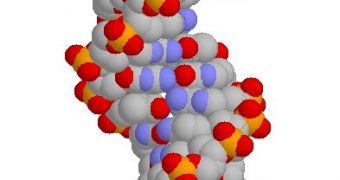Microsoft Research is dipping into the human gene pool through a set of new projects costing the Redmond company in excess of $850,000. Via the Computational Challenges of Genome Wide Association Studies (GWAS) program, Microsoft has revealed that it offers support for no less than six research projects, with a couple of them focused on discovering the causes of neurodegenerative illnesses such as Parkinson and Alzheimer.
"The Microsoft Research GWAS program provides crucial funding at the interface between information management and quality healthcare," said Michael Kane, an assistant professor of Computer Technology at Purdue University and one of the researchers selected to receive support under the GWAS program.
Microsoft has chosen to support only six of 40 projects submitted by 39 academic organizations across the world. The funding from the Redmond company will enable computational GWAS research designed to highlight the associations between genetic patterns and various diseases, disorders, the aging process, while at the same time identifying the connections with the diseases, aging or the expression of genetic disorders. The ultimate goal.
"Patient-specific genotyping to assure prescription drug safety and drug effectiveness is a major step toward the emergence and adoption of personalized medicine, and this support is key to facilitating that vision. Microsoft Corp. has recognized the important role information technology will play in the future of healthcare. Ultimately, this is about technology that helps to save lives," Kane added.
Kristin Tolle, program manager for biomedical computing on the External Research & Programs (ER&P) team at Microsoft Research, revealed that out of all the research areas in which the Redmond company is involved, healthcare has the potential to deliver an impact at a global scale.
"When it comes to performing genetic analysis, researchers are often hampered by the data itself, whether it's inconsistencies in format, the inability to visualize it, or sheer volume. Through this program, Microsoft Research is encouraging the development of computer-science solutions to improve data access, standardization, visualization and tools to help scientists study the human genome," Tolle stated.

 14 DAY TRIAL //
14 DAY TRIAL //